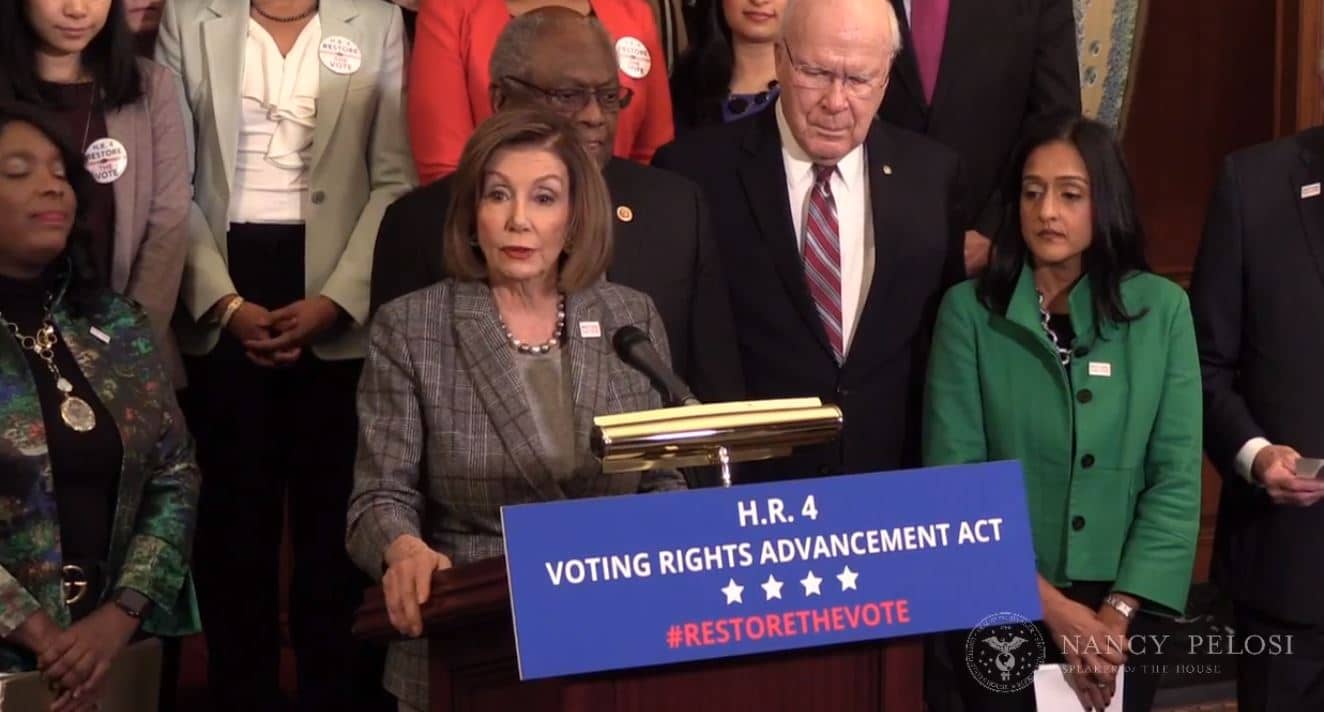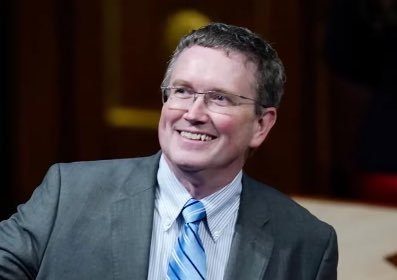House Approves Restoration of Key Provisions of Voting Rights Act

WASHINGTON — The Democratic-controlled House approved a bill Friday that would restore key sections of the Voting Rights Act requiring officials in 15 states to receive federal approval before making changes to the voting process.
The bill, H.R. 4, the Voting Rights Advancement Act, would effectively reverse Shelby v. Holder, a 2013 Supreme Court decision that voided a “pre-clearance” provision of the Act that determined which jurisdictions needed federal oversight of elections.
The bill was approved, 228 -187, and now goes to the Republican-controlled Senate, where it is unlikely to move forward.
Supporters said the measure added protections necessary to prevent voter suppression in upcoming elections. The bill requires states in the South and other areas with a recent history of voting rights violations to pre-clear election changes with the Justice Department.
At a news conference prior to the vote, House Speaker Nancy Pelosi said since the Shelby v. Holder decision, 23 states across the United States have enacted voter suppression laws that have denied millions the right to vote.
As a result, she said, House action was “urgently needed to combat the brazen voter suppression campaign spreading across the nation.”
House Majority Leader Steny Hoyer said in his view the Supreme Court made a bad decision in Shelby. The court was ultimately charging Congress with the responsibility of updating the provisions it found fault with.
“We have responded this day to that charge. Under the previous Republican-led Congress, that charge was ignored,” Hoyer said.
Quoting from Justice Ruth Bader Ginsburg’s dissent in the Shelby decision, Hoyer said, “throwing out pre-clearance when it has worked and is continuing to work to stop discriminatory changes is like throwing out your umbrella in a rainstorm because you are not getting wet.”
Rep. Terri Sewell, D-Ala., the bill’s chief sponsor and vice chair of the New Democrat Coalition, said, “No right is more precious to our citizenship than the right of all Americans to be able to vote. When Americans are not able to cast their ballots, their votes are silenced.”
She went on to say that all elected officials “should be alarmed if any American who wants to cast a ballot is unable to cast a ballot.”
Sewell, who grew up in Selma, Alabama, said, “voting is personal to me, not only because I represent the America Civil Rights District, but because it was on the streets of my hometown that foot soldiers like our incredible colleague, Rep. John Lewis, shed their blood on the Edmund Pettus Bridge so that all Americans, regardless of race could vote today.”
Rep. Derek Kilmer, D-Wash., chairman of the New Democrat Coalition, said he was proud to see the House support the bill, which his coalition had endorsed.
“One of the most sacred rights as an American is the right to vote. Unfortunately, we know that too many Americans have faced barriers to the ballot box,” Rep. Kilmer said. “Generation after generation of voting rights advocates have fought in hopes of ensuring that every American voice is heard.”
“This bill will safeguard voting rights by putting teeth back into the Voting Rights Act and ensure equal access to the ballot box,” he added.
Although the prospects for the bill in the Senate are dim, one member, Sen. Patrick Leahy, D-Vermont, walked over to the House side of the Capitol to show his support to fellow Democrats and to press Senate Majority Leader Mitch McConnell to bring the bill to the Senate.
“Fifty-four years after the passage of the Voting Rights Act, voter suppression should be left to the history books,” Leahy said.
Instead, he continued, “It’s alive and well … maybe the water cannons are clubs today, and the police dogs have been replaced by bogus Voter ID requirements, but the goal is the same — state-sponsored, systematic disenfranchisement.”
Addressing McConnell directly, Leahy said, “Let us vote. Let us do our jobs. We should not let this languish in the Senate’s legislative graveyard.”
The White House has already expressed its opposition to the bill, dismissing it as an example of federal overreach.
In a statement, the White House said the measure approved by the House would give the federal government “too much authority over an even greater number of voting practices and decisions made by states and local governments without justifying the current needs for such policies.”























